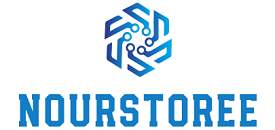Top 10 Fintech Companies In The US That Are Using Artificial Intelligence
After a winter of disillusionment in the 1990s and early 2000s, Artificial Intelligence (AI) is making a comeback. In the financial services industry, this comeback is very clear. As early adopters of new technologies, banks and other financial service providers are quickly embracing AI, even though it can only be used for narrow tasks right now.
Autonomous thinks that the industry will save more than $1 trillion because of this adoption. Fintech is at the front of this wave of AI in finance. Most fintech companies work directly or indirectly with financial industry players to make AI applications that work in the real world. This list shows ten startups that use AI for finance.
Signifyd
Signifyd works with e-commerce businesses to help streamline and speed up the approval process at checkout while also reducing fraud and increasing compliance. The startup can make customer risk profiles by putting together information from a network of more than 10,000 merchants.
These solutions can help online stores cut down on fraud when used at checkout. Signifyd works with companies like Jet.com, Lacoste, and Build.com, and its software works with Shopify, Magento, Big Commerce, and Salesforce Commerce Cloud. The company has raised $206 million.
DataVisor
DataVisor was started in 2013 to help banks and other financial institutions use AI to fight fraud and other financial crimes. Based in Mountain View, California, the startup uses unsupervised machine learning to find fraud and financial crime campaigns long before they do a lot of damage.
It does this by using data from more than 4 billion people worldwide who use financial services to teach machines how to learn. Traditional solutions for finding fraud are reactive, but DataVisor offers a proactive financial security solution that learns independently. Sequoia Capital, Genesis Capital, New Enterprise Associates, and GRS Ventures led funding rounds that brought in $54 million for the company.
HyperScience
Back-office operations often get stuck because of document processing, which pits human productivity against compliance issues. HyperScience is using machine learning to solve problems with document processing.
Since its founding in 2014, the New York-based AI startup has made machine-learning models that can automate data entry teams and speed up the processing of invoices while keeping high levels of information reconciliation driven by compliance. The early-stage company, which focuses on processing structured and semi-structured documents using AI, has raised $48.9 million.
AppZen
AppZen was started in 2012, and it uses AI to automate back-office audit and compliance workflows. The AI platform uses intelligence and reasoning similar to humans to fully audit expense reports, invoices, and contracts, finding problems in seconds.
AppZen uses data from both internal and external sources, like social media and third-party apps like Oracle, NetSuite, and Concur to train its AI. AppZen’s AI for auditing and compliance is built on advanced computer vision and natural language processing (NLP). So far, the company has raised $52.6 million and has customers like Amazon, Hitachi, Novartis, and Airbus.
ZestFinance
ZestFinance uses AI to help financial service providers do better credit modeling and risk profiling. The AI finance startup that focuses on credit underwriting is helping banks and other financial institutions increase the number of loans they approve while keeping default rates the same or lowering them.
The startup’s service, Zest Automated Machine Learning, or ZAML, is made to be an AI solution that doesn’t work in a “black box” and makes all decisions clear. Depending on their needs, companies can use ZAML tools on-premise or cloud. The company has raised $268 million in venture capital.
Upstart
Upstart is shaking up the lending market using AI to make credit scoring work differently. Traditional lenders only look at your credit score and how long you’ve had credit, but Upstart also looks at where you went to school, what you studied, and jobs you’ve had in the past.
Using AI to sort through this data allows the company to give borrowers credit that fits their needs. The company was started in 2012 by people who used to work at Google. Banks, credit unions, and other financial service providers can use its unique AI platform for credit scoring as a SaaS tool. So far, $584 million has been raised by the company.
CapAnalytics
Cape Analytics uses AI and geospatial imagery to help insurance companies determine how risky and valuable property is. The AI startup was started in 2014. It collects geospatial imagery data from dozens of sources and then uses AI to analyze and score the properties in these images. So, insurance companies can get information about a property right away, which gives them more information to use in their underwriting models.
By looking at underwriting, insurance companies can automate and speed up a process that is currently very time-consuming. The company’s services can be bought as a SaaS solution or through an API that works with other systems. So far, $31 million has been raised by Cape Analytics.
FutureAdvisor
FutureAdvisor uses artificial intelligence (AI) to automate wealth management and make investment suggestions. By combining personal investment accounts like 401(k), IRA, and other taxable accounts, FutureAdvisor’s algorithm checks the overall health of your portfolio and looks for investment and tax-break opportunities.
FutureAdvisor gives individual investors a long-term, household-wide investment perspective. A team of chartered financial analysts and other experts helps train and improve investment algorithms. Sequoia Capital, Canvas Ventures, and other firms have put $21 million into the AI startup.
Wealthfront
Wealthfront is an AI-powered Robo-advisor that only offers financial planning, investment management, and banking services through software. Wealthfront markets its service as a “financial copilot” to help people reach their financial goals. The service is aimed at small investors who may not have the skills or experience to invest.
Wealthfront aims to make investing easier and more accessible for everyone by eliminating time-consuming calculations and phone calls to brokers. The company is in charge of $12 billion worth of assets and has raised $204 million.
Ayasdi
Ayasdi has made a platform called AI-as-a-Service that helps financial service providers and other businesses use AI to solve their problems. Most businesses are figuring out how to use AI, so Ayasdi gives them a place to try out AI applications without building the whole infrastructure themselves.
For example, Ayasdi works with Citi to help internal and external users find useful information in big, complicated data sets. The company started in 2008 and is based in Menlo Park, California, and has raised $97 million in venture capital.
The Next Step in AI for Finance
AI in finance is a big trend that is changing quickly. One thing that all of these startups have in common is that they all use AI to solve problems in the financial industry. Then, it’s clear that AI is helping to streamline processes and create efficiencies as a result. But the next version of AI will bring completely new services and solutions that will change the way financial services are done today.
This could mean the end of fraud (which would mean the end of services that track fraud), instant credit (which would mean the end of services that model credit), autonomous and individualized financial advisors (which would mean the end of services that give financial advice), and other things. You can expect more startups to make these AI-based financial applications in the coming years.





